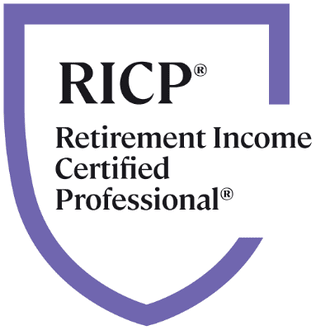
Steps to Maximize Your Retirement Benefits from the Military and Retire Early
Retiring early is a dream many share, and for military personnel, it is possible to achieve it with careful planning and strategic decisions. In this blog post, we will discuss the steps you can take to maximize your retirement benefits from the military and retire early. By understanding the various retirement options, optimizing your savings and investments, and making informed choices, you can set yourself up for a financially secure and fulfilling early retirement.
Understand Your Retirement Options
Know Your Eligibility: Familiarize yourself with the retirement programs available to military personnel, such as the High-36, Redux, and the Blended Retirement System (BRS). Understand the eligibility requirements, service obligations, and each option's impact on your retirement benefits. The following section discusses the opportunities to maximize your retirement benefits besides the military pension.
Evaluate Vesting Periods: Determine the minimum service requirement for retirement benefits eligibility. Consider how long you plan to serve in the military to ensure you meet your desired retirement timeline criteria. You must have 20 or more years of service to receive the military pension. If you want to retire early, getting a military pension may be the key, as it provides lifetime income.
Research Early Retirement Programs: Explore programs that offer early retirement benefits, such as the Temporary Early Retirement Authority (TERA). Understand the eligibility criteria and any potential reductions in benefits associated with early retirement. At least five years before you plan on retiring, start to map out your future outside of the military. Are you going to get a civilian job, work in the private sector, start a business, and so forth?
Optimize Your Savings and Investments
Contribute to Thrift Savings Plan (TSP): Take advantage of the TSP, the military's equivalent of a 401(k) retirement savings plan. Maximize your contributions to the TSP, especially if your service allows for matching contributions, to benefit from tax advantages and accumulate a substantial retirement nest egg.
Save in Additional Retirement Accounts: Explore Individual Retirement Accounts (IRAs) and other tax-advantaged accounts to supplement your TSP savings. Traditional and Roth IRAs offer unique tax benefits and can provide additional flexibility in managing your retirement funds.
Diversify Your Investments: Ensure your retirement portfolio is well-diversified to mitigate risk and maximize returns. Consider a mix of stocks, bonds, and other investment options that align with your risk tolerance and long-term goals. Regularly review and rebalance your portfolio to maintain optimal asset allocation.
Take Advantage of Tax Optimization Strategies: Familiarize yourself with tax planning strategies to minimize your tax liability during retirement. Utilize strategies like tax-loss harvesting, strategic Roth conversions, and taking advantage of favorable tax brackets in retirement to optimize your overall tax situation. Roth IRAs are typically recommended for those that want to retire early as the money grows tax-free and comes out tax-free in retirement.
Minimize Debt and Control Expenses
Reduce High-Interest Debt: Prioritize paying off high-interest debt, such as credit card balances and personal loans. Minimizing debt can free up additional funds for retirement savings and reduce financial stress in retirement. This is extremely important as having lots of debt will take away from potential retirement savings. Work on aggressively paying down your debts, except for your mortgage, then maximize your retirement savings.
Live Below Your Means: Adopt a frugal lifestyle and practice disciplined spending habits. Consider downsizing your housing, cutting unnecessary expenses, and avoiding lifestyle inflation to save more towards retirement. Implementing a budget and tracking your expenses can help you identify areas where you can cut back and increase savings. Work on a budget. You can use various budgeting apps online, a spreadsheet or a piece of paper. If you don't have a budget, you will not know where your spending is going, making it harder to maximize your retirement savings.
Evaluate Insurance Coverage: Regularly review your insurance policies, including health, life, and disability coverage, to ensure adequate protection without overpaying for unnecessary coverage. Shop around for competitive rates and consider bundling policies for potential discounts.
Plan for Healthcare and Other Benefits
Understand TRICARE Options: Familiarize yourself with the TRICARE healthcare program and its coverage. Explore available options for you and your family to ensure comprehensive healthcare coverage in retirement.
Research Veterans Benefits: Investigate the benefits available to veterans, such as education assistance, home loans, and VA healthcare. Understand the eligibility criteria, application processes, and any associated benefits.
Seek Professional Guidance
Navigating the complexities of retirement planning can be challenging when maximizing your benefits as a federal government worker. Consider seeking professional guidance from financial advisors with expertise in federal employee benefits. They can help you develop a tailored retirement strategy, optimize your investment allocations, and provide insights on maximizing your available benefits. Contact me on the page below if I can be of service to put you on a path to retire early.
*This content is developed from sources believed to be providing accurate information. The information provided is not written or intended as tax or legal advice and may not be relied on to avoid Federal Government tax penalties. Individuals are encouraged to seek advice from their own tax or legal counsel. Individuals involved in estate planning should work with an estate planning team, including their legal or tax counsel. Neither the information presented nor any opinion expressed constitutes a representation of a specific investment or the purchase or sale of any securities. Asset allocation and diversification do not ensure a profit or protect against loss in declining markets.





